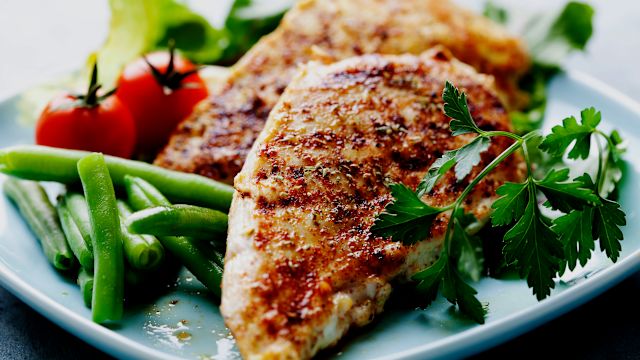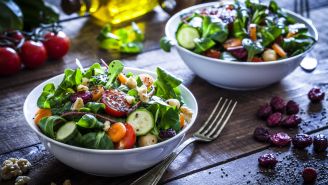This protein-rich, low-fat chicken dish is easy to make and filled with flavor. Have it with a sweet potato and side salad for a simple, healthy and nutritious meal.
Ingredients
- 1/3 oz dried basil
- 1/4 oz dried chives
- 1/4 cup fresh lemon juice
- 1/4 cup white wine
- 1/2 oz minced garlic
- 1/2 tsp black pepper
- 1/2 cup olive oil
- 6 boneless, skinless chicken breasts, about 4 oz each
Preparation
Whisk together basil, chives, lemon juice, white wine, garlic, black pepper and olive oil. Pour over chicken, turning to coat evenly. Refrigerate for 24 hours.
Heat oven to 350 degrees. Remove chicken from marinade and discard marinade. Arrange chicken on baking sheet and bake for 20 to 25 minutes or until chicken is thoroughly cooked.
Serves 6
Nutrition facts
Per serving: Calories 168; fat 6.1g; saturated fat 1.3g; cholesterol 70mg; sodium 62mg; carbohydrate 0.6g; fiber 0.2g; protein 25.8g; calcium 20mg






